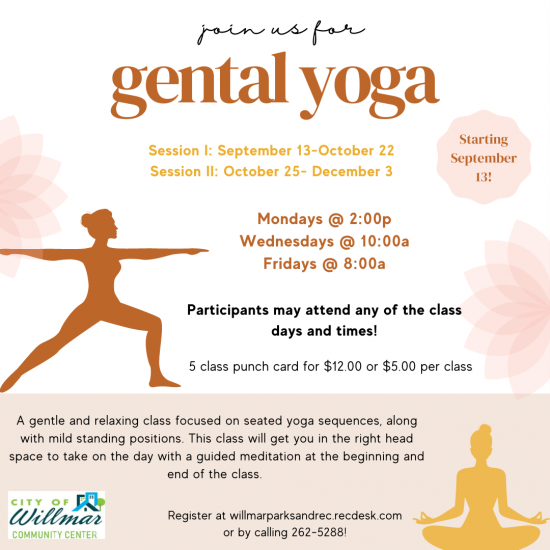
An article in the New York Times from 2012 claimed that yoga could cause damage to your back and even lead to your death. This article was based upon cherry-picked anecdotes and many of them were exaggerated. These stories, however, were not representative for the overall yoga experience. Yoga is safe, according to scientists. Here are some tips for beginners to yoga.
Yoga has many health benefits. If you have suffered any injury, stop doing yoga. Not only can continuing the practice lead to additional complications, such as hemorrhoids, but it can also cause pain. In these cases, you should seek medical attention and consult a yoga instructor. You should seek out a certified instructor who is trained in dealing with hip problems.

Incorrectly performing yoga poses can lead to serious injuries. For example, if you're recovering from knee surgery, you should check with your doctor before starting a yoga program. While the poses can be modified to minimize these risks, you should still consult a doctor before attempting them. It is also important to note that yoga is not suitable for everyone with heart or lung problems. Heartburn is the most common side effect of excessive yoga, as with all exercise.
Yoga can cause serious injuries to people with certain health conditions. Some poses, including Paschimottanasanasanasanasanasanasanasana as well as Padmasanasana are potentially dangerous. If you're suffering from knee or disc pain, don't try yoga for these situations. You could end up injuring or hurting your self. It is important to practice safely and consistently to avoid this.
Although yoga has many benefits, not all are worth the effort. Although some poses can hurt your knees and cause pain, most pose are safe and not dangerous. You can adjust the poses to suit your fitness and health. Avoid placing too much strain on your knees, especially if you have arthritis. They should not be done if you're pregnant, have high blood pressure, or are otherwise prone to injury.

Yoga can be a great way for stress relief and to improve your health. However, some people find it dangerous. It isn't just about reducing stress; it can cause serious injury. You may need to stand on your head and stretch your legs for intensive yoga. These can cause injury. Yoga can be safe for most people and improve your quality-of-life. It can be good for your physical and mental health but it can also pose a danger for some.
FAQ
What are the five best ways to improve mental and emotional well-being?
-
Exercise - It improves brain function and raises energy levels.
-
Sleep - Getting enough sleep helps reduce stress and anxiety.
-
Nutrition – Healthy foods like fruits and vegetables can help you stay strong and energized.
-
Meditation - Meditation reduces anxiety and stress.
-
Socialization - Spending quality time with family and friends keeps us happy.
Why is mental wellbeing important?
Everyone needs mental health. Mental health is crucial for all people. It is important to have a healthy mind.
Stress can cause mental problems and even physical symptoms. This could cause problems in the body such as backaches, stomachaches, headaches and stomach pains. It is important to take care for our bodies and minds in order to maintain a healthy balance.
What can I do for my mental well-being?
Everyone needs mental health, especially when we feel stressed at work, school, home, or family. Exercise regularly, eat healthy meals, get enough sleep, and spend time with loved one are all ways to improve mental health. Exercise can increase endorphins, which make us happier. Good nutrition is essential for a healthy body. Being well rested gives you energy for the day. Spending quality times with loved one improves relationships and reduces stress.
Why is mental health so important?
Work, play, learn, and love. Mental health refers only to our overall health. When we refer to mental health, we mean the physical, psychological and spiritual factors that have an impact on us every day. There are many options for taking care of yourself mentally and physically as well as emotionally, spiritually, financially, and socially. You don't have to do everything at once; just start somewhere!
Understanding where your mental health stands now is the first step toward improving it. To find out if your support system is adequate, take this quiz. You might consider changing your lifestyle if you have a low score.
Congratulations! Let's now look at what you can do to maintain or improve your mental health.
-
Get enough sleep Get enough sleep to keep your brain alert and stimulated. Get at least 7 hours of sleep every night according to the American Academy of Pediatrics.
-
Exercise Regularly. Exercise releases endorphins in your body which makes you happier and less likely to stress. You should aim to exercise for 30 minutes five times a week.
Statistics
- Appropriate nutrition and exercise are likely among the most efficacious and cost-effective positive mental health interventions. (ncbi.nlm.nih.gov)
- According to the National Alliance of Mental Illness (NAMI), one in five Americans experiences mental health issues which translates to more than 40 million adults a year. (doctorondemand.com)
- Similarly, for positive mental health, there is likely to be substantial agreement about some typical components (e.g., resilience to stress) 6, and controversy about more atypical components (e.g., career consolidation). (ncbi.nlm.nih.gov)
- Neuropsychiatric diseases are the leading cause of death and disability in the U.S., accounting for 18.7 percent of all years of potential lifespan loss and premature mortality.
- It does have some influence, but not nearly as much as we might think, so focusing less on attaining wealth will likely make you happier (Aknin, Norton, & Dunn, 2009); (positivepsychology.com)
External Links
How To
How to Improve Memory
Everyone wants to be better at remembering things. Unfortunately, memory decline is something we all experience at some point. In fact, more Americans than 65 years old suffer from dementia.
No matter if you are dealing with Alzheimer's disease, dementia or any other form of cognitive decline, there are many options to improve your memory. Here are three simple steps to take right away:
-
Eat More Fruits & Vegetables. Vegetables contain phytochemicals, vitamins, nutrients, fiber, antioxidants, and minerals that enhance brain function. They also provide essential nutrients that protect against neurological diseases.
-
Get Enough Sleep. Lack of sleep has been linked with memory loss and poor concentration. Make sure you get seven to eight hours of restful sleep each night.
-
Take a Walk. Walking stimulates blood flow and improves memory. Walking is good for your health and helps you look slimmer.